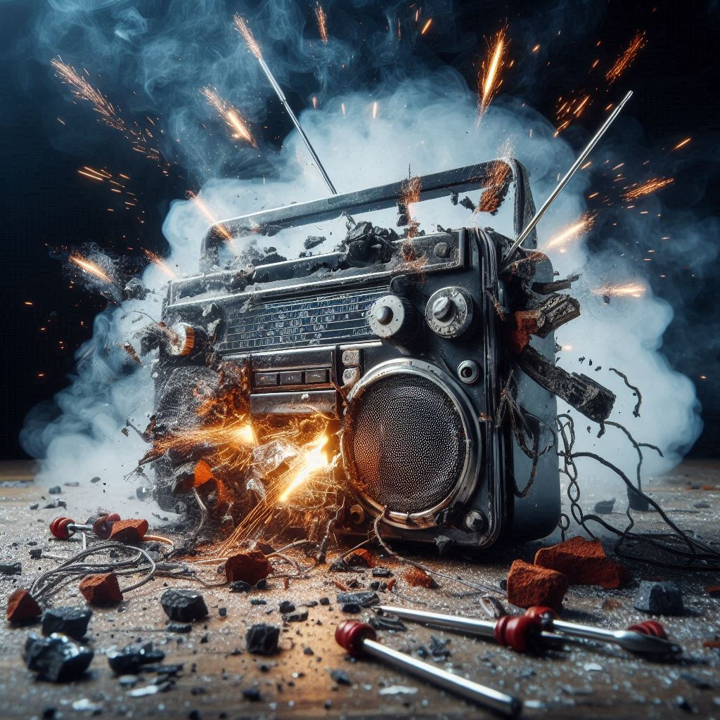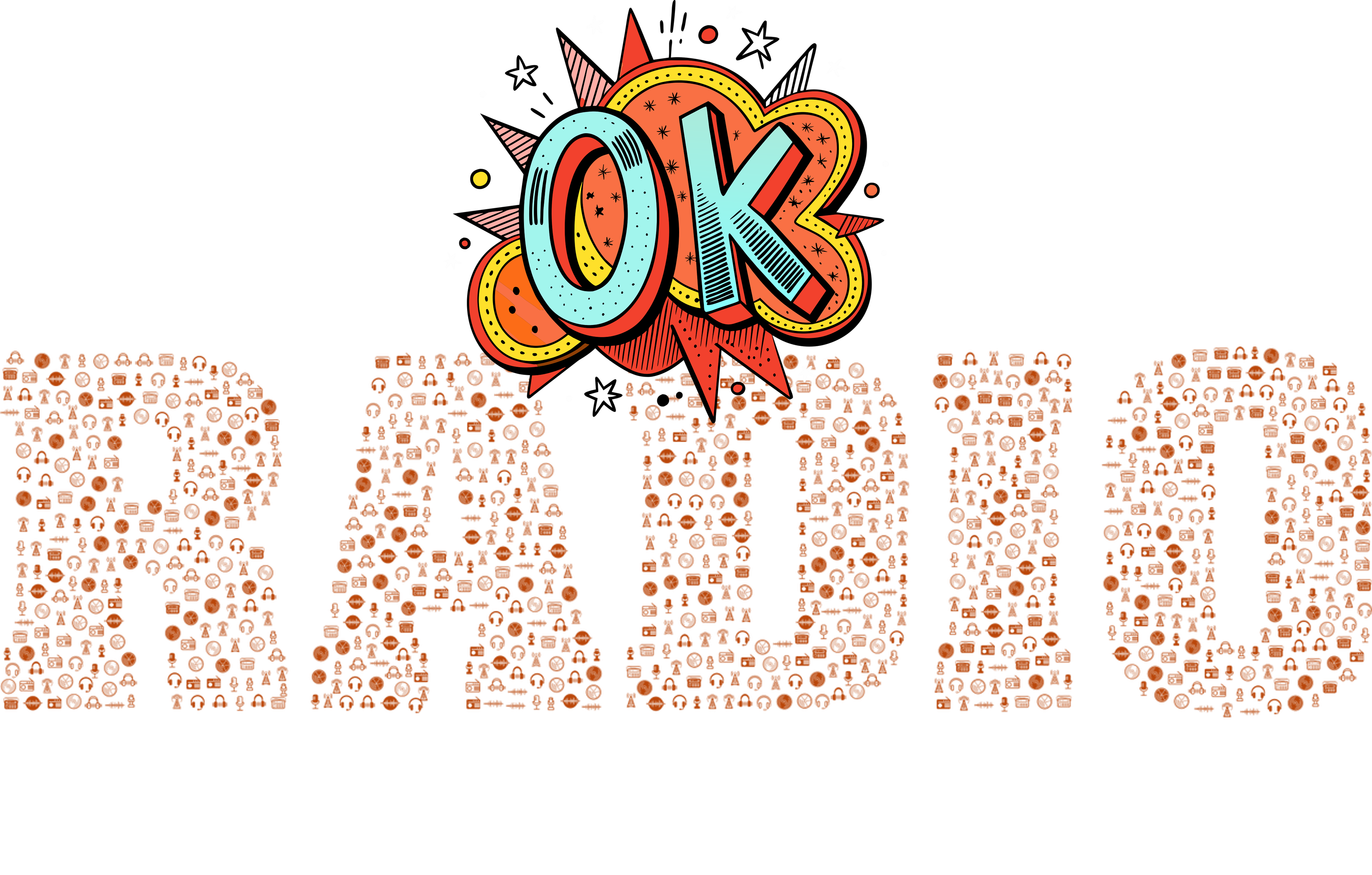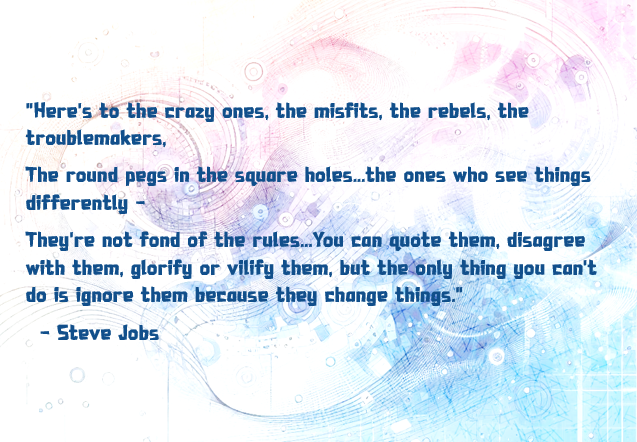
How’s your station sounding these days? Plus or minus, there’s a good chance it doesn’t sound architecturally much different than it sounded back in 2014. Or 2004. Or even 1994 – if you’ve been around that long in the same format. Perhaps some people have come and gone, the music is different (if you’re playing new stuff). But structurally, the essential sound probably isn’t a whole lot different than it’s always been.
And that’s a good thing, right? Radio is a game of consistency and habit. As a programmer, the goal is usually to create a comfortable, familiar environment to become part of an audience’s routine, an essential link in their daily habit structure – especially Monday through Fridays when things tend to play out pretty much the same way.
But if you talk to some of the most successful people in business about your game plan, they might question the essence of what you’re doing. The co-CEO of Netflix, Ted Sarandos (pictured below), is one of those guys. And he’s got the receipts to prove it.
The Hollywood Reporter was on hand during a recent keynote Sarandos made to the the Royal Television Society’s London Convention. Among other things, he talked about Netflix’s two biggest competitors – not Amazon Prime, Hulu, or Disney+.
the the Royal Television Society’s London Convention. Among other things, he talked about Netflix’s two biggest competitors – not Amazon Prime, Hulu, or Disney+.
It turns out two of the biggest stumbling blocks the company has faced are video piracy and Netflix’s own DVD business.
Maybe the first doesn’t surprise you, but the second one will. It was Netflix’s success with mailing DVDs to us in those signature red envelopes that almost led to the company’s demise. That’s because most CEOs wouldn’t have let the company’s massively successful video streaming model come to light. Most would have hung onto the DVD business for dear life, ceding video streaming to another player – like Amazon, Apple, or even Spotify.
But the Netflix core team were disciples of former Apple visionary Steve Jobs who spent prime chunks of his career cannibalizing his own business. Remember that Jobs put Apple’s wildly successful iPod franchise on the line when he introduced us to the iPhone. And soon after, he challenged iPhone’s dominance when Apple unveiled the iPad.
At each turn, Jobs wasn’t afraid to advance his company’s trajectory by disrupting Apple’s biggest divisions with something new, different, better. Sarandos summed it up this way: “If you ever find yourself protecting the business (you’re in), you’re pretty much dead…We’ve got to constantly challenge ourselves to break (the business) and move our business forward on behalf of our consumers.”
“Break the business.”
Imagine if Steve Jobs owned a radio company made up of a couple hundred stations in its portfolio. Would they all sound the same? That is, would every one adopt tried and true formats like Hot AC, Classic Rock, Sports Talk, and Alternative – the “Wheel of Formats” that thousands of radio stations all over the country do a version of?
its portfolio. Would they all sound the same? That is, would every one adopt tried and true formats like Hot AC, Classic Rock, Sports Talk, and Alternative – the “Wheel of Formats” that thousands of radio stations all over the country do a version of?
Or would at least a handful of those stations have been committed to becoming sandboxes, incubators – grand and not-so-grand experiments to try something different – a format literally outside of the industry’s rigid box?
Was consolidation supposed to be merely a tool designed to achieve financial dominance? Shouldn’t it also have been the green light to use at least a few of those tokens on the board to do things perhaps a little avant-garde or experimental – to see what’s around the corner, to figure out what’s next?
It’s all part of a “fan first” philosophy at Netflix, an acknowledgment that the company’s clientele don’t all have the same tastes. As Sarandos implored the assembled attendees in London, “Put the audience first.” That means, how can Netflix look at its company mission through the lens of fans, “not critics or media execs.”
Other key reminders: “Success is more art than science.” In media companies at least, that’s tantamount to embracing the reality that algorithms cannot do it all. Human programmers have to make the calls. And that’s going to mean taking a shot on a show like The Crown, something different than CSI or America’s Got Talent. In a hierarchy like this, there will be flops. But that’s the way media companies become successful.
I’ve spent considerable time with rank-and-file broadcasters over the summer, especially at state broadcaster association gatherings. At these conventions, galas, and awards dinners, you spend time with everyone – grizzled veterans, young entrants into our business, big market pros, and mom & pop owners, many of whom are second and third generation family broadcasters.
Despite the diversity of these attendees, however, the driving question is the same:
Are we going to be OK?

And the answer, of course, is nuanced. It isn’t simple, because big, hairy audacious questions can never be answered with a simple “yes” or “no” response. It’s more complicated than that.
Fortunately, there’s a schematic for how to make change happen. It’s an essay in Medium from this past summer. Called “Act different” by Mike Maples, Jr. that describes how you get there from here.
Like Ted Sarandos, Maples channels the swashbuckling Steve Jobs who didn’t just welcome radical unorthodox thinking in Apple – he encouraged and nurtured it.
“Break the business.”
I love this quote, because it reminds me of some of the great programmers, air talents, and content creators over the years who didn’t rely on templates, algorithms, or formulas to design and execute their programming.
There was a time in radio where we sought out these types of people. They were mercurial, difficult to manage, and they rarely filled out their HR forms on a timely basis.
But they created new format and innovations, they found talent in odd places, and they questioned everything. As Maples notes, they have the ability to distinguish “between the world that is and the world that can be.”
He reminds us of the need for leadership that “acts differently, thrives on confrontation, challenging the status quo and fostering high expectations.”
So, when broadcasters from all walks of radio life ask me “the question:”
Are we going to be OK?
I hesitate because I firmly believe that the longer radio continues to do pretty much everything the same way, the best we can expect is to tread water and live to fight another day.
If that’s the expectation, we have a shot. Radio is no longer a great business, but it still is a good one. And it might be able to hold onto that status for a while.
But to not just to survive but to thrive, this industry is going to have to throw the ball down the field. Who knows? We may not complete the pass. We might even throw an interception. In essence, anything can happen.
And that means we might even score a touchdown.
Let’s put some points up on the board.
“Break the business.”
- For Radio, Where Does Digital Revenue Go From Here? - June 6, 2025
- “My Favorite Decade Of Music Is The __’s” - June 5, 2025
- Who’s Got It Better? Talent In Commercial Radio vs. Talent in Christian Music Radio - June 4, 2025




A lot of the ills that have befallen radio are the result management hubris. (A good manager can manage anything. The pointy-haired boss in Dilbert)
If managers have no understanding of creativity, or do not allow creativity, no amount of micro-managing or demands to bow to their authority will result in anything other than mediocrity.
Rehashing the same contests, the exact same way year after year or demanding that announcer talk breaks be focused on local events at the expense of personality is not the road to engagement. The old rule was ‘how busy are the phones?’ The new rule seems to be ‘don’t bother us.’
As Seth Resler often promotes, the future is community. If your station cannot even create a sense of community within the building, (either due to boredom, apathy or a toxic workplace) how can you expect to be part of a larger community?
Success is being a part of your tribe, and cheering on each and every one of them.
Phil, it’s a tough terrain out there. Thanks for reminding us we have to face the shortcomings. There’s nothing the least bit “tribal” about the current model.
The Art of the Business & The Business of The Art. Radio is Special, Licensed and able to Connect One On One with the Target Audience. Radio enhances low cost with high quality. Listen to the Seasoned Broadcasters. Don’t get distracted by chasing unproven products. Just do it. 1220watx.com CLASSICS!
Roger that, Clark.
Amen. And sledgehammers are on sale at The Home Depot. Sorry, they’ll be no spin the wheel to win 😁
And that harder you hit it, you’re guaranteed to land on the same boring options. That’s the way it’s designed. Thanks, Tim.
No Fred thank you. While discussing some strategery this morning, we went over a print out of this column as a guide. I owe you some Starbucks.
All the thanks I need is hearing you read it, and on some days, it stimulate a conversation. Thanks, Tim.
I’ve got a bad feeling about this. Are the big companies about to “break” radio? I just read about one that’s adding a new syndicated show to its lineup, so it’s more sameness that won’t fix what we know is wrong. More importantly, the distribution vehicle has been totally disrupted. AM? FM? Streaming? Analog? HD? Satellite? As it is now just about everyone can find an entertainment source to fit their needs. It’s all become a matter of “personal choice” -and “broad”casting can’t meet an individual’s personal needs. We’re clinging to a hope that “mass appeal” media can still be successful. Does anyone really see that possibility? We’re great at posing the problems, but-because we’re faced with bean counters controlling broadcasting, we’re powerless to try to apply the solutions presented here almost daily.
Dave, it’s hard to argue with your basic supposition the odds are now stacked against radio. But there has to be that point reached where running the ball up the gut play after play simply isn’t going to amount to any substantial gains It’s not just budget limitations (although that’s obviously an issue), but the inclination to innovate. There are enough bland FMs out there running in place, not to mention HD2s and HD3s that could at least be experimenting with something new.
Although this little story happened 25 years ago, I think it’s relevant:
I worked at a radio conglomerate that had 11 different talk and music radio formats. One of the music stations was in trouble after its morning show team left for a competitor. The station was too dependent on them, and it wasn’t until they left that we realized it.
Anyway, and despite the fact that the station had been #1 in the market with its Top 40 format, we decided it was time to give it a new vision.
We did market research, supported by a consulting firm, and among the different format options that appeared there was one that had never been used in our country: we called it ‘Pure Rock’.
Many made fun of our proposal, but since its launch in 1998, it has always remained in the Top 10, playing Rock in a country where Tropical music and Reggaeton are the most popular musical genres.
And we were able to do this precisely – and as you suggest in the article – because we had several formats, so we could experiment with one, knowing that the others could keep the company afloat without problems.
In fact, the main competitor of that station told us that he had wanted to adopt our new format for years, but had not dared because he only had one independent station.
You are right in what you say: “the longer radio continues to do pretty much everything the same way, the best we can expect is to tread water and live to fight another day.”
Tito, thanks for sharing this story. It is telling and indicative of radio continued inability to innovate. What’s the worst that could happen with an experimental format? You have to change formats in two years? (That’s the way it works now.)
Fred,
Can you tell me any new format in the last 15 to 20 years that has caused listeners to get excited and talk?
Can you even tell me a promotion or a personality that got a city, let alone the nation, talk since at least the past 10 years – and probably 15.
Does anyone still do marketing (what we sell to others), research, big promotions? How many top personalities and programmers have been cut to make the quarter? And yet the pundits declare Radio dead.
This isn’t because the device or medium known as “radio” is broken, just the companies and people running the stations.
Believe it or not, Andy our local Fox affiliate has a deal with the local company to promote their stations. Is it enough to propel these stations to the top of the ratings? Probably not, but at least we’re learning that they believe in marketing their product. Promotions on air? Nah. Personalities, maybe one or two. The answers to the questions you ask are “none” or “no” -and in the age where broadcasting has a number of alternative choices, radio may not be dead. But it’s certainly on the disabled list.
Radio has simply abdicated its domminance. And the illusion consolodation would enable the equivalent of a monopoly in most markets. Thanks to the Digital Revolution, of course, that never happened. It’s hard to disagree with most of your points, but there is some marketing happenining out there, but none of it is on the scale we enjoyed in the 80s when typically, whole bunches of stations were promoting themselves and their shows multiple times a year. Thanks for commenting.
This will be strident and obnoxious. Consolidation somehow triggered the worst people in radio to be in charge – almost to a person. Not all were bad people, but all were not close to being up to the job and fell into the Wall Street trap,only to be dropped by Wall Street when they concluded that radio couldn’t deliver 15% growth every year. Then it got worse and their self destructive focus on cost cutting vs diversification, the obvious need for a digital strategy and retoing for younger listeners and blindness to inevitable diminishing value in their transmitters was somehow not only tolerated but supported. And peeps like Andy Bloom and I have been saying it for decades. .
They went from fooled, to flawed to fatuous. In short, they’re idiots who pretty.much enacted a plan to kill the medium. It’s on life support and it’s unclear whether if radio did any of those things now if anyone under 40 would care or respond. Yet they still aren’t even trying. Idiots and all they can do is whine about how agencies won’t focus on 65+ and brag about reach numbers that no one cared about in the 80s much less now.
Anyone who cared about and/or participated in radio when it mattered should be appaled. Looking for losers, look no further than radio’s C and V suites – they’re filled with em.
It may be strident and obnoxious, as you wanned at the outset, Bob. But it is honest and straight from the heart. The “instant replay” on the game plan radio ran after consolidation went into effect is a horror show for the medium. And the timing with the coming of the Internet couldn’t have been worse – a perfect storm. And yet, as you posit, we still don’t know whether better, more creative programmming could ever stimulate trial by the under 40 set. The fact no one is tryig i what’s appalling. Thanks, Bob.
This is such a great post,Fred! Trust me when I say that I look forward to the rebels and the “out of the box” thinkers. I love creativity but beware of those who believe you can automatically win with an “out of the box” format. You’d better know where we’ve been and how we got to “where we are” before you make the maximum possible bet on a “wild idea”, My door to success has remained open and the success has been on an upward trend since my entrance 67 years ago. I’ve been lucky to have encountered plenty of creative folks who bet the farm on a new idea. I’m doing what I’ve done for 67 years and enjoying radio more than ever. Granted, I realize that I’m ripe for a fall each day that I venture out on this tight wire but I’m confident that my plan will easily outlive my remaining years.
Roger, thanks or taking the time to join this conversation and to offer your wizened perspective. You are right, of course, to exercise caution for “the net big thing” idea or format. The road is littered with them, most of them poorly thought out or a flash in the pan.
One of my best programming experiences was here in Lansing, Michigan, circa 2005. I was hired as the PD of WMMQ and WJIM-FM. WMMQ needs no introduction, but at the time of my hire WJIM-FM was an oldies station. And a very good one.
Then the landscaped changed and a crosstown competitor dropped CHR for a Jack-like format. It’s worked out well for them, but immediately left a huge hole in the market. The decision was to flip from oldies…and its aging demos, to CHR. We did it in 3 days.
Part of that process was hiring air talent and with the exception of mornings, all were hourly with good but limited experience.
I had the best aircheck sessions with this group of young professionals. It was great hearing the results of those sessions on the air. But I learned much from them about their world which largely reflected the audience. The norms I was accustomed to were challenged and it was all for good.
Our first website was a MySpace page….put together by the air staff, who understood where our listeners were going.
Our music library came from KKOB-FM inn Albuquerque. I called Kris Abrams as I had worked with his brother Keith earlier in New Mexico. Kris was using what he called “pop tags” with a female voice announcing the artist and title of each song. The KKOB library came with those tags and we hired the voice and adopted that for our own ads going forward.
I like to think that with the help of my staff and Kris Abrams, we-in a small way- developed a fresh approach to CHR. Soccer moms now heard the title and artist of each song and could now sound better informed as to what their kids might be listening to.
We need to listen to the youth we hire. They have lots to offer. This is one way we reinvent.
(Did I just really write this????)
Indded you did, Dan, and the story is appreciated. Us (often jaded) radio veterans need to acknowledge the contributions young people can bring to our aging business. You just laid it out well.
Unfortunately it all comes down to a disease that has been affecting not only radio but various other businesses as well. It’s called “I’m the boss and I don’t like people who come up with a good idea because I didn’t come up with it first.” These types of people will cut off their own noses just to spite their own faces. Let’s face it. Some people would rather be in control and fail or at best achieve mediocrity instead of trying out a new idea simply because someone else thought of it. The road to radio hell is paved with good AQH intentions.
Your last linr, Curt.